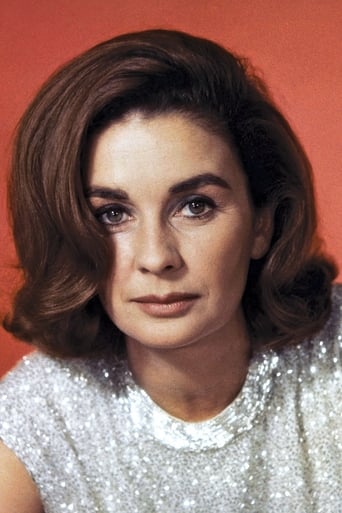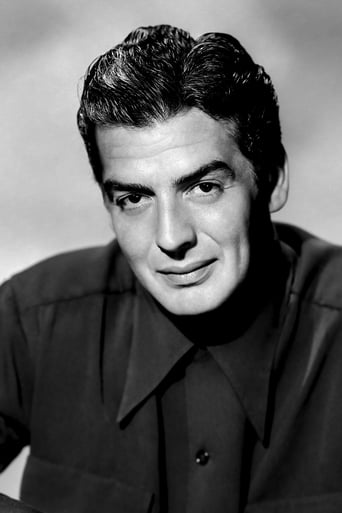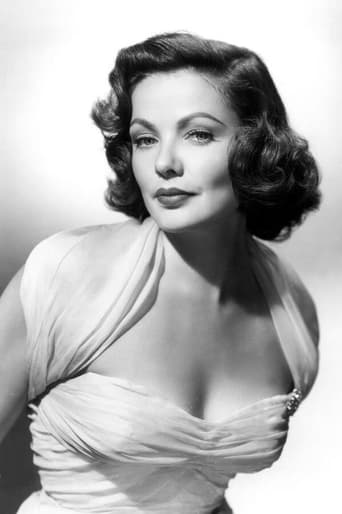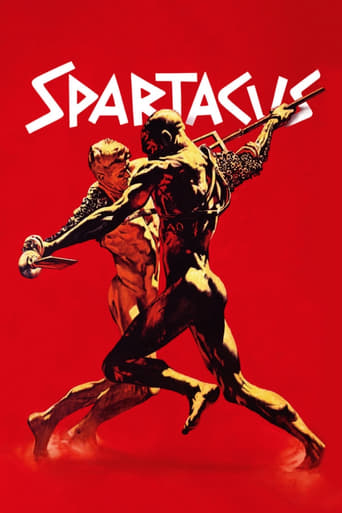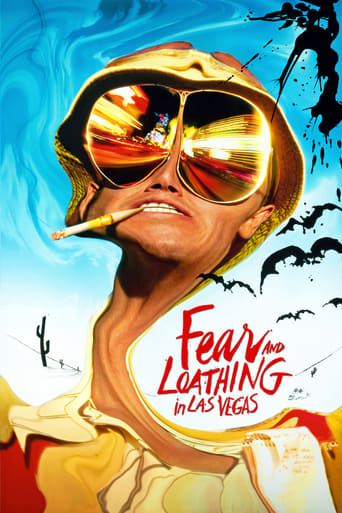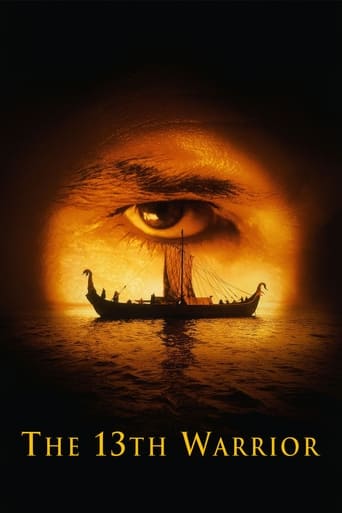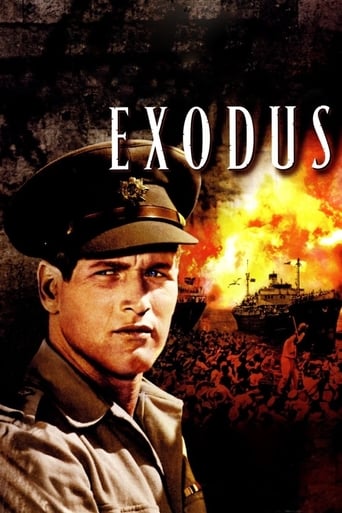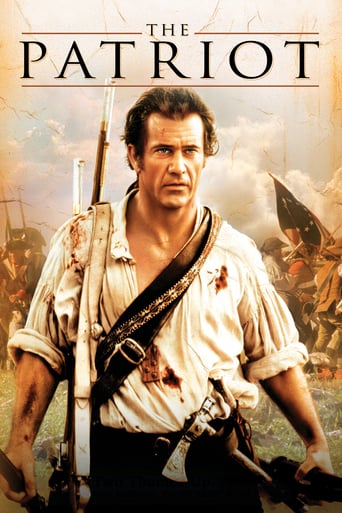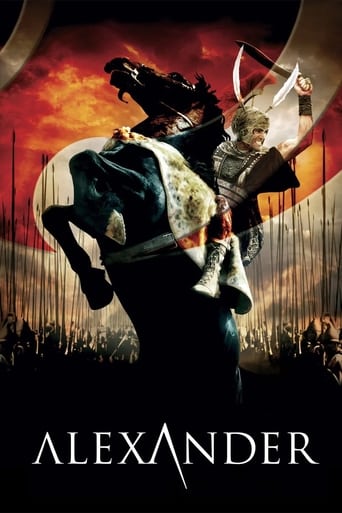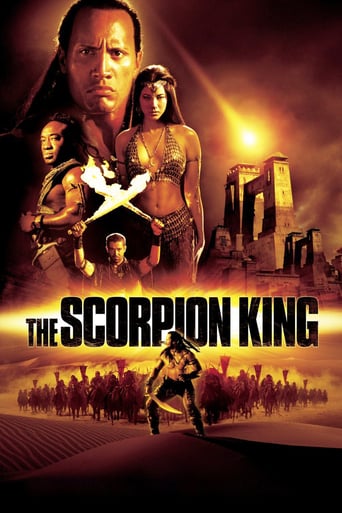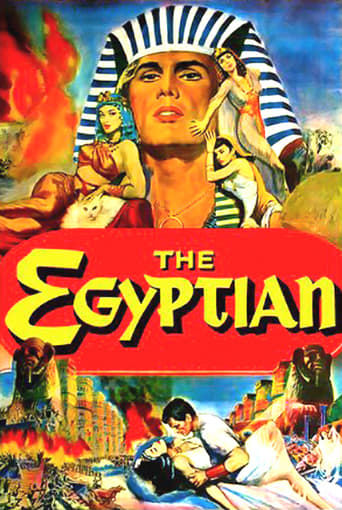
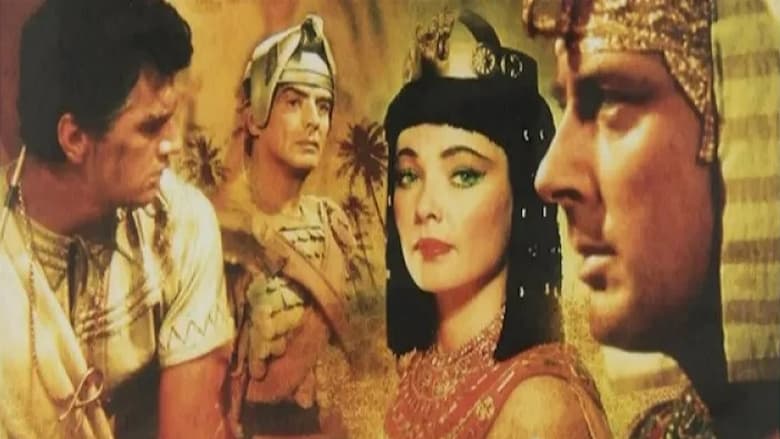
The Egyptian (1954)
In eighteenth-dynasty Egypt, Sinuhe, a poor orphan, becomes a brilliant physician and with his friend Horemheb is appointed to the service of the new Pharoah. Sinuhe's personal triumphs and tragedies are played against the larger canvas of the turbulent events of the 18th dynasty. As Sinuhe is drawn into court intrigues he learns the answers to the questions he has sought since his birth.
Watch Trailer
Cast


Similar titles
Reviews
The 1954 film "The Egyptian" is the type of film made to be seen on a huge movie screen. The film, directed by Michael Curtiz, spared no expense in cast, costumes, or photography.Edmund Purdom stars as Sinuhe, a poor orphan in 18th Century Egypt, who becomes a physician and is given a palace appointment by the Pharoh (Michael Wilding). But Sinuhe's life will take many turns. He becomes obsessed with Nefer (Bella Darvi) and gives her everything, including his parents' house and burial tombs, only to be rejected by her. He has to leave Egypt when the Pharoh's daughter becomes ill and Sinuhe does not appear at the palace to tend to her. He and his self-appointed slave (Peter Ustinov) travel everywhere, and Sinuhe again builds his reputation as a physician, and his wealth. Eventually he returns to Egypt, where his friend Horemhob is now the head of the Pharoh's guards, and war is about to rage.The star of this film was supposed to be Marlon Brando, but he didn't like anything about it, included Bella Darvi, so Purdom was cast. Purdom just wasn't an exciting actor, and he didn't warm up the camera. In a film that is paced slowly, his performance wasn't much help. There is, however, some wonderful acting from Peter Ustinov, Gene Tierney, Jean Simmons, and a boisterous performance from Victor Mature.Bella Darvi as Nefer gives basically a one-note performance. She was a protégée of Darryl and Virgina Zanuck, and Mrs. Zanuck thought of her as a daughter. When she found out that her husband thought of Darvi as more of a girlfriend, she threw both of them out of the house. Darvi came to a bad end, committing suicide in 1971. Here she reminds me a little of Linda Christian. She is quite beautiful and speaks with a slight lisp.Definitely worth watching, especially if you like this type of film.
For many of the more highbrow producers, the holy grail of the 50s big picture was the so-called "intimate epic". Daryl F. Zanuck's production of The Egyptian opens with a spiel about the people of this ancient time being ordinary men and women, making this one of the earliest examples of a picture openly setting itself up for that lofty task.The human story of this epic is however unusually pessimistic, with its hero being ruined by his obsession for an evil woman, becoming a bitter rival to his best friend and losing the only woman who really loved him. This being the age of film noir, it's tempting to make parallels with pictures like Scarlet Street and Out of the Past. Of course, the femme fatale plot device is as old as Adam and Eve or Pandora's Box, but it is true that in the 50s there was a tendency for those cynical story lines to creep into the most unsuspecting of genres. There was also a convention in these ancient world epics of bringing Christian or Judeo-Christian philosophy into the picture (God not being a major figure in your typical film noir), although unusually The Egyptian is not a bible story. Instead it uses as its backdrop the rule of Akhenaton, a genuine historical figure who instated a brief period of monotheism in ancient Egypt. And oddly enough the conflation of Aton the sun deity with the Abrahamic God comes across as far more genuine and intelligent than, say, the rather dubious Easter story spin-off of The Robe, and its sermonising is far gentler than that of The Ten Commandments or Ben Hur.In the director's chair we have the highly-respected Michael Curtiz. Curtiz was in many ways a great choice because he was so adept at handling crowds and visual complexity, although old-timers like Curtiz (who made his debut in 1912) tended not to get on well with the cinemascope ratio. But while Curtiz continually makes the mistake of framing his actors from around the knees up as if they were in fullscreen, he balances out the extra width by keeping a lot of depth in his shots, occasionally highlighting the distant focal points for greater definition – such as the dancer in yellow in the bathhouse scene. Often he will place the deepest part of the shot to one side or another to give emphasis to that half of the screen. There's also some of his distinctive use of movement to drive the narrative forward smoothly. When we hear Edmund Purdom's voice-over telling us about the Jean Simmons character, the camera follows her, all the background business disappearing, with the exception of a single extra in one corner. This extra then gets to his feet, drawing our eyes to that corner, upon which the camera pans back to the right to reveal the procession announcing the pharaoh's death. This elaborate yet inconspicuous arrangement segues us neatly from one part of the story to the next.Unfortunately, that very mechanical nature of Curtiz's direction is not ideal for highlighting the acting performances. Then again, perhaps there is not much here to highlight. Lead man Purdom is by no means bad but he is astonishingly dull. This is a major failing with the picture because it becomes difficult to sympathise with him or believe in his actions. In contrast Jean Simmons and Victor Mature while not outstanding players at least had some character and intrigue about them. Thank goodness for Peter Ustinov, whose delightful and immaculate comic delivery here and there allows the movie to break free from its depressing austerity. There's also a colourful yet sadly short appearance by John Carradine as a grave robber. But while Ustinov and Carradine provide entertaining diversions, the only really strong dramatic performance is that of Gene Tierney, who gives a bit of realism to Baketamon, and actually manages to draw that line between folks ancient and modern as mentioned in the opening lines.The Egyptian is admittedly a noble effort to come up with an original and engaging spin on the ancient world epic. The trouble is it's not really enough of one thing or the other. The dramatic human story is simply not well-executed either by cast or crew, and while the whole production may be steeped in a look of authenticity, there is just not enough scope or spectacle to make this a satisfying epic either. The champions of the intimate big picture may have had high-minded intentions, but in truth the genre flourished most with the shameless splendour of Zimbalist and DeMille.
A man and a religion. Discovery of the essential things in life and taste of long fights. In the skin of a impressive show. A film about hope and dark expectations. About love, abdications and truth. About the price of gestures and force of words.Story of a doctor in a lost era, with the dreams and surrenders and the need to testify the facts of a small travel. The golden age of Hollywood is present in every detail. But the final taste is more different. Sinuhe may be everyone. His story is the novel of success and lost present in every life. And the letters on papyrus are the traces of any oldness. Sure, the Christianism is the principal character but it is more than the crooks of a faith. It is the portrait of existence's sense. A film as a fado. Delicate and harsh, labyrinth and scene, show and occasion of reflection, history of a myth and drop of a legend, smoke and stone in same composition. A film for dreamers. And for who hopes be more than a letter's line.
When this film gets it right it really gets it right. And when it goes wrong... I'd say that a full 3/4s of the film is great. I can even isolate the bad bit. It's everything that has to do with the romance. Everything that you need to know about it is said in the first five minutes but it drags on for about 30. I'd recommend skipping that section if you can. It does nothing except explain his exile. It should have been a minor plot point quickly thrust aside. Fortunately, the period from about 0-30 and 1:00-2:19 (The End) is excellent.There are a number of excellent performances in this film, and an equal number of terrible ones. Just like everything else in this movie the acting is either perfect or terrible. Peter Ustinov as the slimy one-eyed slave Kaptah is perfect. It is one of his best performances, up there with his role in Spartacus. Victor Mature as the ambitious Horemheb is also perfect. Again, one of his best roles. Jean Simmons is wasted as Merit, the perfect girl in love with our hero John Carradine gives a nice supporting role as a philosophical grave robber; and Michael Wilding is excellent as Akhnaton, the idealistic pharaoh who tries to bring peace and monotheism to Egypt only to see it fall apart due to his unwillingness to fight. Now for the bad. Edmund Purdom as Sinuhe is sadly miscast. This is doubly unfortunate as he is the main character. The entire film revolves around him. He actually does rather good as the disillusioned exile and the wise old man. This is because of his sorely limited range. He doesn't seem able to put any passion into his words. This is especially apparent during the love scenes which are beyond awkward. He spends the last half of the film as an old man, a performance at which he is decent enough at. He does have the perfect voice for the character. The less said about Bella Darvi as Nefer, the treacherous Babylonian woman, the better.The costuming and sets are magnificent. This is the only film that I know of that attempts to depict life in Egypt that isn't overshadowed by Jews or Romans. The film takes place in the 14th Century B.C. which is before even Exodus. The only monotheists are the pharaoh Akhenaten and his followers. There is the same strong element of religious zeal that can be found in most epics, but it is done differently and it only shows up at the very end. An interesting note: by having Akhenaten followed by Horemheb as pharaoh, the film completely skips over the most famous pharaoh of all: Tutankhamen. Seems kind of a strange thing to do when using that name could increase awareness of the film.Be warned: this is a 1950s epic film. If you don't like that type of thing then don't expect this one to be different. It is different, but it is still an epic. I appreciate this film, and I appreciate what it did and what it tried to do. This is a film that should be better remembered than it is.


